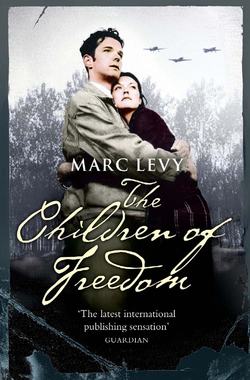Читать книгу The Children of Freedom - Марк Леви, Marc Levy, Marc Levy - Страница 9
2
ОглавлениеEverything began like a children’s game, three years earlier, on 10 November 1940. The unimpressive French Marshal, surrounded by a few prefects with silver laurels, came to Toulouse to start a tour of the free zone of a country that was in fact a prisoner of his defeat.
Those directionless crowds were a strange paradox, filled with wonder as they watched the Marshal raise his baton, the sceptre of a former leader who had returned to power, bringing a new order with him. But Pétain’s new order would be an order of misery, segregation, denunciations, exclusions, murders and barbarity.
Some of those who would soon form our brigade knew about the internment camps, where the French government had locked up all those who had made the mistake of being foreigners, Jews or Communists. And in these camps in the South West, whether at Gurs, Argelès, Noé or Rivesaltes, life was abominable. Suffice to say that for anyone who had friends or family members who were prisoners, the arrival of the Marshal felt like a final assault on the small amount of freedom we had left.
Since the population was preparing to acclaim this very Marshal, we had to sound our alarm bell, awake people from this terribly dangerous fear, this fear that overcomes crowds and leads them to throw in the towel, to accept anything; to keep silent, with the sole, cowardly excuse that their neighbours are doing the same and that if their neighbours are doing the same, then that’s what they should do.
For Caussat, one of my little brother’s best friends, for Bertrand, Clouet or Delacourt, there’s no question of throwing in the towel, no question of keeping silent, and the sinister parade that is about to take place in the streets of Toulouse will be the setting for a committed declaration.
What matters today is that words of truth, a few words of courage and dignity, rain down upon the procession. A text that is clumsily written, but that nonetheless denounces what ought to be denounced; and after that, what does it matter what the text says or doesn’t say? Then we still have to work out how to make the tracts as broadly balanced as possible, without getting ourselves arrested on the spot by the forces of order.
But my friends have it all worked out. A few hours before the procession, they cross Esquirol Square with armfuls of parcels. The police are on duty, but who cares about these innocent-looking adolescents? Here they are at the right spot, a building at the corner of rue de Metz. So, all four slip into the stairwell and climb up to the roof, hoping that there won’t be any observer up there. The horizon is empty and the city stretched out at their feet.
Caussat assembles the mechanism that he and his friends have devised. At the edge of the roof, a small board lies on a small trestle, ready to tip up like a swing. On one side they lay the pile of tracts that they have typed out, on the other side a can full of water. There is a small hole in the bottom of the vessel. Look: the water is trickling out into the guttering while they are already running off towards the street.
The Marshal’s car is approaching; Caussat lifts his head and smiles. The limousine, a convertible, moves slowly up the street. On the roof, the can is almost empty and no longer weighs anything; so the plank tips up and the tracts flutter down. Today, 10 November 1940, will be the felonious Marshal’s first autumn. Look at the sky: the sheets of paper pirouette and, to the supreme delight of these street urchins with their improvised courage, a few of them land on Marshal Pétain’s peaked cap. People in the crowd bend down and pick up the leaflets. There is total confusion, the police are running about in all directions, and those who think they seek these kids cheering the procession like all the others don’t realise that it’s their own first victory that they’re celebrating.
They have dispersed and are now going their separate ways. As he goes home this evening, Caussat cannot have any idea that three days later he’ll be denounced and arrested, and will spend two years in the municipal jails of Nîmes. Delacourt doesn’t know that in a few months he will be killed by French police officers in a church in Agen, after being pursued and taking refuge there; Clouet is unaware that, next year, he will be executed by firing squad in Lyon; as for Bertrand, nobody will find the corner of a field beneath which he lies. On leaving prison, his lungs eaten away by tuberculosis, Caussat will rejoin the Maquis. Arrested once again, this time he will be deported. He was twenty-two years old when he died at Buchenwald.
You see, for our friends, everything began like a children’s game, a game played by children who will never have time to become adults.
Those are the people I must talk to you about: Marcel Langer, Jan Gerhard, Jacques Insel, Charles Michalak, José Linarez Diaz, Stefan Barsony, and all those who will join them during the ensuing months. They are the first children of freedom, the ones who founded the 35th brigade. Why? In order to resist! It’s their story that matters, not mine, and forgive me if sometimes my memory fails me, if I’m confused or get a name wrong.
What do names matter, my friend Urman said one day; there were few of us but we were all one. We lived in fear, in secrecy, we didn’t know what the next day would bring, and it is still difficult now to reopen the memory of just one of those days.
